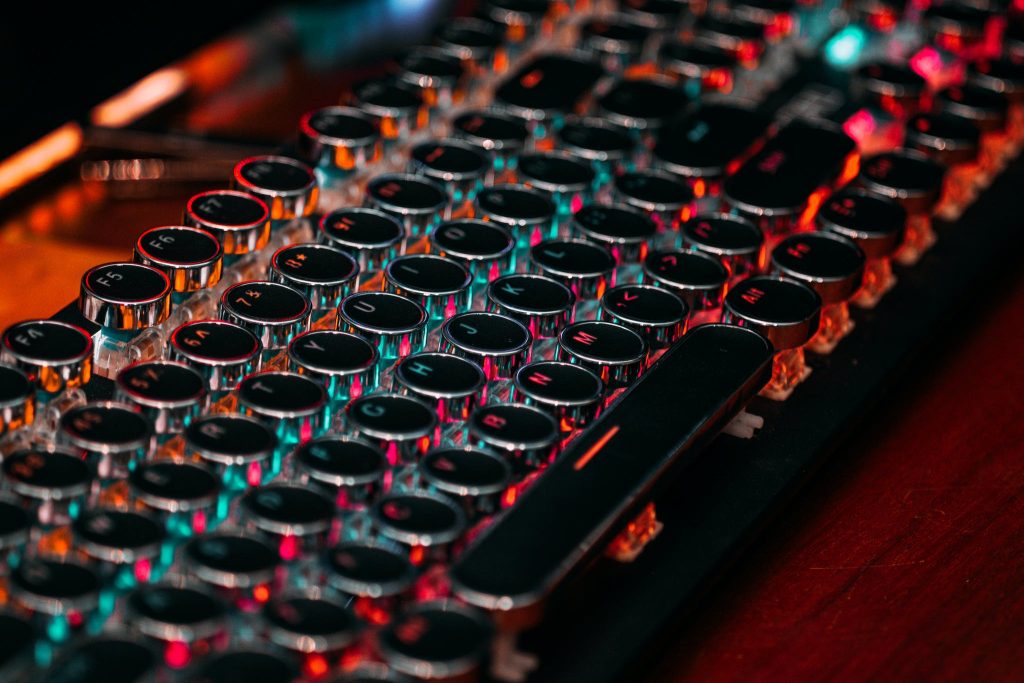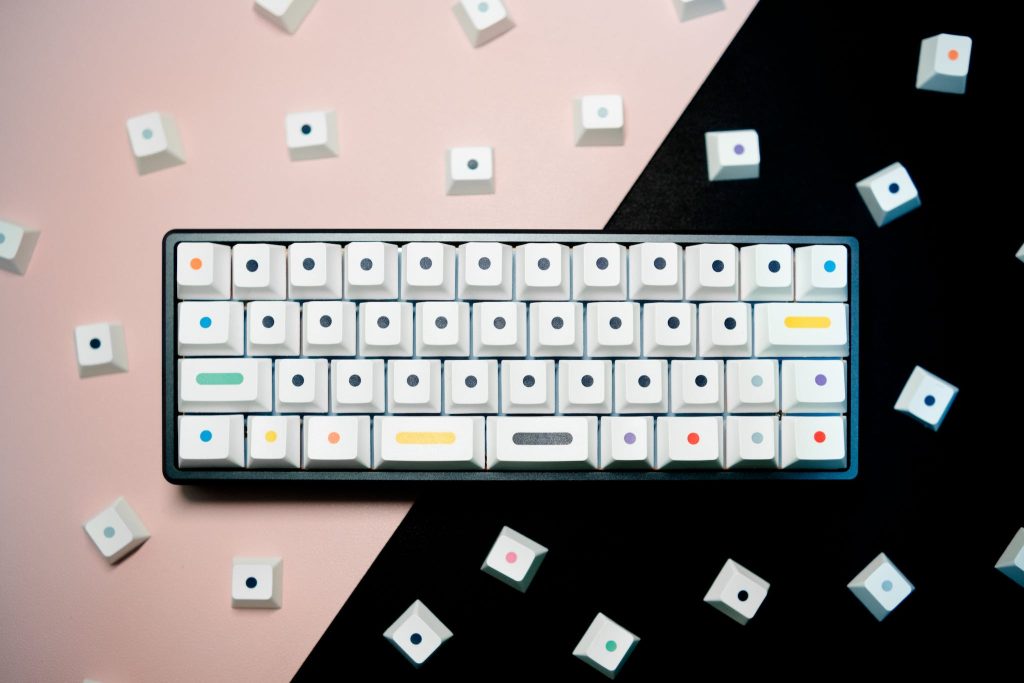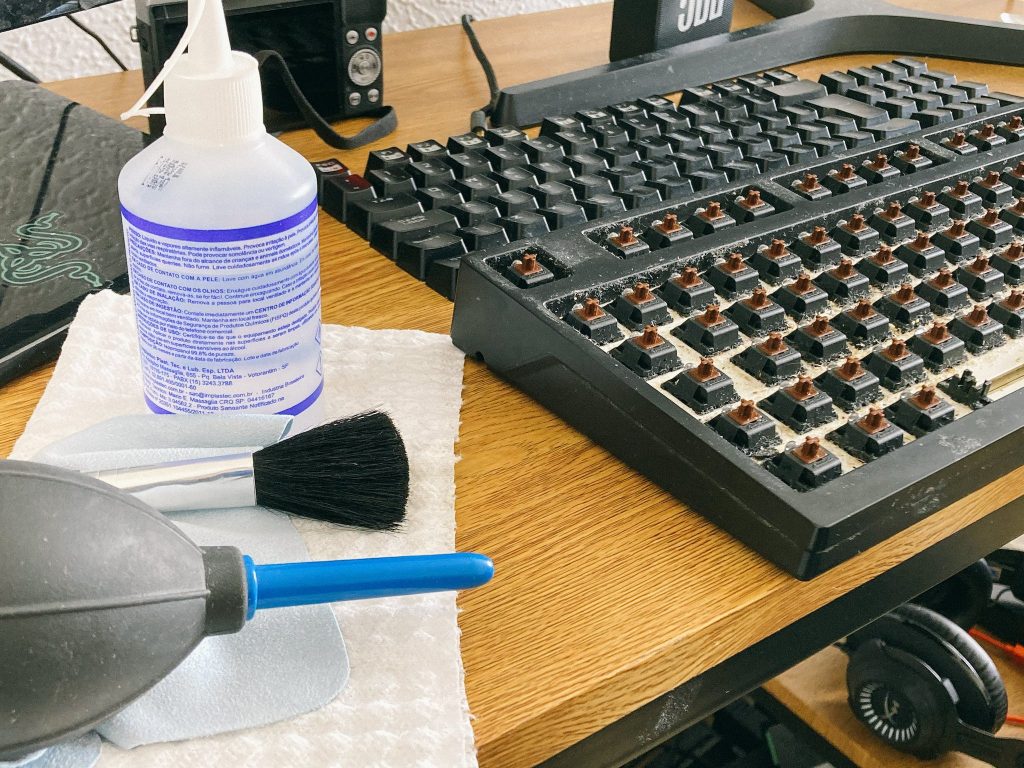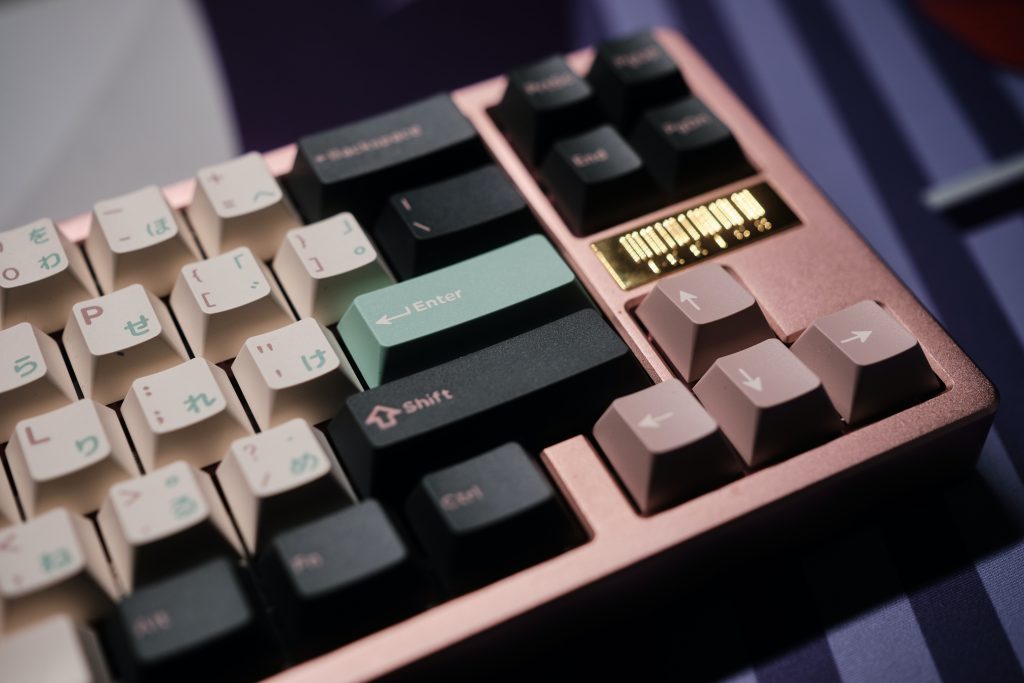Mechanical keyboards have long been hailed as the go-to choice for serious gamers. But what’s the buzz all about? This article delves into the intricate details of why and how mechanical keyboards might just be the better option for gaming. Let’s dive in.

Understanding Mechanical Keyboards
Mechanical keyboards differ from their membrane counterparts primarily in how they register keypresses. While membrane keyboards rely on a pressure pad system to register a keystroke, mechanical ones use individual switches for each key. These switches provide tactile feedback and often produce an audible click sound.
The Significance of Tactile Response in Gaming
Tactile response is paramount in gaming. A player must know, without any doubt, that a command has been registered. Mechanical keyboards are known for their tactile feedback, ensuring that gamers have clear confirmation of a keystroke. This can be essential in fast-paced games where precision and timing are crucial.
Mechanical vs. Membrane
In the world of gaming, milliseconds can determine victory or defeat. Hence, the response time of a keyboard becomes a significant factor. Mechanical keyboards tend to have an edge in this department. The actuation point on mechanical switches, the moment a keypress is registered, is usually higher. This means that players don’t need to press the key fully down for it to register, leading to quicker reactions.
| Aspect | Mechanical | Membrane |
|---|---|---|
| Tactile Response | High (distinct feedback) | Low (mushy feel) |
| Response Time | Faster (due to higher actuation point) | Slower |
| Durability | Long-lasting (often >50 million keystrokes) | Wears out faster |
| Customizability | High (different switch types, keycaps) | Low |
| Price | Generally higher | More affordable |
Durability Matters: A Look at Lifespan
Keyboards, especially those used for gaming, undergo a lot of wear and tear. Gamers need their gear to be durable. Mechanical keyboards come out on top in this aspect as well. These keyboards often boast a lifespan that exceeds 50 million keystrokes per key, whereas membrane keyboards tend to degrade faster.
A Dive into Switch Types
Mechanical keyboards aren’t a one-size-fits-all. They come with different types of switches, each catering to different gaming needs. Linear switches, for instance, are known for their smooth keystroke, making them ideal for fast-paced games. Tactile switches, on the other hand, have a noticeable bump mid-press, making them suitable for gamers who prioritize precision.
Key Rollover and Anti-Ghosting: The Technical Edge
Another significant advantage of mechanical keyboards is their ability to handle multiple simultaneous key presses, known as key rollover. This is crucial for games that require complex key combinations. Alongside this, anti-ghosting features ensure that when multiple keys are pressed simultaneously, ‘phantom’ keystrokes won’t be sent. This technical edge can significantly improve gaming performance.
The Cost Factor: Investment vs. Longevity
While mechanical keyboards tend to be more expensive than their membrane counterparts, it’s essential to view this in light of their longevity and performance advantages. Investing in a mechanical keyboard can offer better value over the long run, especially for avid gamers.
A Deeper Look at Mechanical Switch Types
The versatility of mechanical keyboards lies in the variety of switches available. Each switch type is designed to cater to specific user preferences and gaming genres.
Linear Switches
Linear switches are characterized by a smooth and consistent keystroke without any tactile bump or audible click. This makes them ideal for gamers who require rapid key presses, such as those playing first-person shooters (FPS) where reaction time is paramount.
Tactile Switches
Tactile switches provide a noticeable bump at the actuation point. This tactile feedback helps users identify the exact moment the keypress is registered without having to bottom out the key. Strategy and role-playing game (RPG) enthusiasts often prefer these switches as they offer a balance between speed and precision.
Clicky Switches
Clicky switches combine the tactile bump of the tactile switches with an audible click. They offer both tactile and auditory feedback, ensuring gamers are aware of every registered command. However, the sound can be divisive; while some find it satisfying, others might find it disruptive.

The Role of Key Rollover and Anti-Ghosting in Gaming
In high-stakes gaming scenarios, players often press multiple keys simultaneously. Mechanical keyboards with high key rollover (KRO) can register a large number of simultaneous keypresses without missing out on any. This is crucial for games that involve complex combos or multitasking.
Anti-ghosting ensures that when multiple keys are pressed simultaneously, only the actual pressed keys register. Without this feature, certain key combinations can result in unintended keypresses, which can be detrimental in competitive gaming.
Customizability: Making It Personal
Mechanical keyboards often offer a higher degree of customizability compared to membrane keyboards. This includes:
Keycaps
Gamers can replace stock keycaps with custom ones made of different materials, colors, and designs. This not only enhances the aesthetic appeal but can also improve grip and feel.
Backlighting
RGB backlighting is a popular feature, allowing users to customize the color and lighting effects. Some gaming keyboards even offer game-specific lighting profiles, enhancing immersion.
Programmable Macros
Many mechanical keyboards come with software that allows users to program macros — sequences of keystrokes triggered by a single keypress. This can provide gamers with a competitive edge, especially in MMORPGs where complex skill rotations are common.
Mechanical Keyboards and Ergonomics
Given the extended hours gamers spend on their keyboards, ergonomics plays a crucial role. Mechanical keyboards often come in various layouts and designs, including tenkeyless (TKL) or ergonomic split designs, allowing users to choose one that best suits their hand size and typing style.
Additionally, the tactile feedback from mechanical switches can reduce the likelihood of “bottoming out” keys, leading to reduced finger fatigue during prolonged gaming sessions.
The Environmental Impact
Durability and longevity mean fewer replacements. Given the extended lifespan of mechanical keyboards, they can be seen as a more environmentally friendly choice. Fewer replacements imply less electronic waste, making it a more sustainable option in the long run.
The Aesthetics and Acoustics of Mechanical Keyboards
Beyond pure functionality, mechanical keyboards are often celebrated for their aesthetic and acoustic appeal. The design and sound of a keyboard can significantly enhance the overall gaming environment.
Aesthetic Appeal
Mechanical keyboards, with their customizable keycaps and RGB lighting, offer a level of personalization that’s hard to match. Brands have recognized the demand and now offer keyboards with brushed aluminum finishes, floating key designs, and even customized artwork. This allows gamers to have a setup that reflects their personality and gaming style.
Acoustic Feedback
The sound of a mechanical keyboard can be as important as its tactile feedback. For some, the audible click offers a rhythmic backdrop to their gaming sessions, almost like a metronome to their actions. Different switch types provide varying sound levels, from the soft thud of linear switches to the pronounced click of the clicky variants.
The Evolution of Mechanical Keyboards
Mechanical keyboards are not a new invention. They’ve been around since the early days of computing, but their evolution has been fascinating. Initially hailed for their durability in office environments, they found a niche within the gaming community in the late 2000s.
With the rise of eSports and competitive gaming, the demand for high-performance gear surged. Mechanical keyboards, with their precision and responsiveness, became a staple in a gamer’s toolkit. Brands began collaborating with professional gamers to design keyboards tailored to the demands of competitive play.
The Learning Curve
Switching to a mechanical keyboard from a membrane one can come with a learning curve. The actuation force, key spacing, and tactile feedback can be different. However, most users report that after an adjustment period, their typing speed and accuracy improve. For gamers, this translates to better in-game performance.
The Future of Mechanical Keyboards
With technological advancements, the future of mechanical keyboards looks promising. We’re seeing innovations like optical-mechanical switches, which use light for actuation, resulting in even faster response times. Wireless mechanical keyboards are also gaining popularity, offering the performance of a wired keyboard with the convenience of wireless connectivity.
There’s also a growing community of hobbyists and enthusiasts who are building their mechanical keyboards from scratch. This DIY culture is pushing the boundaries of what’s possible, leading to innovations in design, functionality, and aesthetics.
The Community and Culture Surrounding Mechanical Keyboards
While the technical aspects of mechanical keyboards are crucial, the culture and community that has sprung up around these devices are equally compelling.
Mechanical Keyboard Communities
Online forums, websites, and social media groups dedicated to mechanical keyboards have grown exponentially. Platforms like Reddit’s r/MechanicalKeyboards and Geekhack have become hubs for enthusiasts to share their custom builds, seek advice, and discuss the latest trends. These communities play a pivotal role in driving innovations and setting industry standards.
Custom Keysets and Artisans
One of the most distinctive elements in the mechanical keyboard community is the creation and collection of custom keysets and artisan keycaps. These are often produced in limited runs and can range from uniquely colored keysets to handcrafted, sculpted designs. Collecting and trading these keycaps has become a hobby for many, with some rare artisans fetching high prices in secondary markets.
Keyboard Meets and Conventions
Pre-pandemic, enthusiasts organized ‘keyboard meets’ in various cities worldwide. These events provided an opportunity for members to showcase their collections, trade keycaps, and discuss their passion for mechanical keyboards. Manufacturers also attend these events, unveiling new products and getting direct feedback from the community.

Impact on Professional Settings
Beyond gaming, the benefits of mechanical keyboards have been recognized in professional settings. Programmers, writers, and designers, among others, have cited the advantages of using mechanical keyboards in terms of typing speed, accuracy, and overall comfort.
Health Benefits
The ergonomic designs of many mechanical keyboards can help reduce the strain on hands and wrists. The tactile feedback ensures that users don’t have to exert excessive force, reducing the risk of repetitive strain injuries. This is especially crucial for professionals who spend long hours typing.
Mechanical Keyboards and Sustainability
In an era where sustainability is paramount, mechanical keyboards offer an advantage over disposable alternatives. Their durability means they don’t need frequent replacements. Moreover, the modularity of many mechanical keyboards allows users to replace individual components instead of discarding the entire device.
Financial Aspects
While the initial investment in a quality mechanical keyboard can be substantial, it’s essential to consider the long-term value. The extended lifespan, combined with the potential health benefits and increased productivity, can make it a cost-effective choice in the long run.
The Science Behind the Feel
Mechanical keyboards are often lauded for their “feel,” but what does that mean scientifically? The sensation users get from pressing a mechanical key derives from a combination of factors including the switch’s design, the materials used, and the physics of the mechanism.
Force Curves and Actuation
Each mechanical switch has a distinct force curve, representing the amount of force required to press the key versus the key’s displacement. This curve defines the tactile sensation a user feels. For example, switches with a clear bump in their force curve offer tactile feedback, while linear ones have a smooth curve, leading to a consistent pressing sensation.
Sound and Psychology
The auditory feedback from mechanical keyboards is more than just a side effect. Studies in psychoacoustics, the science of sound perception, suggest that certain sounds can enhance user satisfaction and performance. The audible “click” or “clack” can provide subconscious feedback about typing speed and accuracy.
The Rise of Alternative Layouts
Traditional keyboards use the QWERTY layout, but mechanical keyboard enthusiasts often experiment with alternative layouts like Dvorak or Colemak. These are designed to increase typing efficiency and reduce finger movement. The flexibility of mechanical keyboards allows users to easily reconfigure their key placements to suit these layouts.
Split and Ortholinear Keyboards
Some mechanical keyboards deviate from the standard rectangular key arrangement. Split keyboards, which divide the keyboard into two halves, allow for a more natural hand and wrist position. Ortholinear keyboards align keys in straight columns and rows, which some users find more intuitive and comfortable.

Mechanical Keyboards Around the World
The mechanical keyboard trend isn’t limited to English-speaking countries or the western world. Across the globe, in countries like Japan, South Korea, and many European nations, the mechanical keyboard community is thriving. Different regions bring unique perspectives, designs, and innovations to the table.
Language and Design
Non-English languages often require special characters or scripts, leading to unique keyboard designs. For instance, mechanical keyboards designed for the Korean market might incorporate Hangul characters, while those for the Japanese market might feature Hiragana or Katakana sub-legends.
Conclusion:
In conclusion, mechanical keyboards stand out as superior tools for gaming due to their tactile feedback, versatility, and durability. Their evolution, deeply rooted in both history and innovation, showcases their adaptability to modern gaming and professional needs. The global community around them amplifies their significance, with unique designs catering to diverse linguistic and cultural demands.
Their scientific design ensures optimal typing experiences, while alternative layouts present ergonomic benefits. Marrying the nostalgia of typewriters with cutting-edge technology, mechanical keyboards are more than just peripherals; they’re a testament to craftsmanship and the human touch in a digital era.
FAQs
What makes mechanical keyboards different from regular keyboards?
Mechanical keyboards utilize individual switches for each key, providing distinct tactile feedback compared to the pressure pad system of membrane keyboards.
How does the tactile feedback of a mechanical keyboard enhance gaming performance?
The tactile response ensures immediate confirmation of a keystroke, crucial for precision and timing in fast-paced games.
Are mechanical keyboards more durable than their membrane counterparts?
Yes, mechanical keyboards often boast lifespans exceeding 50 million keystrokes per key, making them more long-lasting than most membrane keyboards.
Is the response time faster on a mechanical keyboard when gaming?
Mechanical keyboards typically have a higher actuation point, meaning keypresses register quicker, which can be advantageous in gaming scenarios.
Are mechanical keyboards more expensive than regular keyboards?
While the initial cost of mechanical keyboards can be higher, their durability and performance benefits often justify the investment for avid gamers.

Experience is what matters at the end!!
Hi! This is Jacob Jay – founder of Keyboardgear.com! From childhood to adulthood, I’ve always remained passionate about IT, and the revolution in this industry, especially gaming on the PC can’t go out of my way. Since I’m an enthusiastic gamer, and I love to experience various gaming accessories, particularly mechanical keyboards, that really boost my gaming adventure manifolds. So, my nerve cells hit me to transfer my experiences into word form and share with others to identify the ideal keyboards perfectly fit for their gaming modes.
I know very well how hard it is to find the high-quality items available on the internet that ought to be exactly the same as seen as on the screen. But the counterfeiters have ruined the user’s trust. As I have passed all such situations, I’m obliged to deliver the genuinity and express the same as what I am saying.
So, now, I’m working on the mission to provide very helpful and frankly but trustworthy reviews and guides about various mechanical keyboards, mouses, and other gaming accessories as per my personal experiences and sound knowledge.
